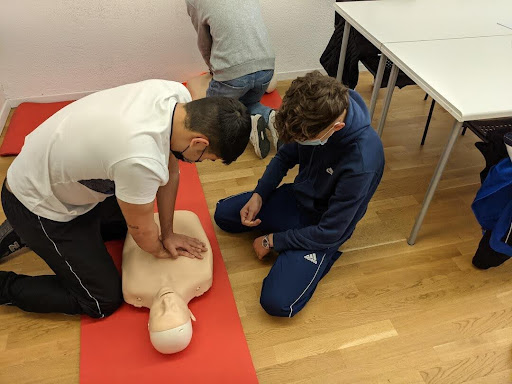Your CPR renewal exam is coming up, and it’s time to get ready. While you’ve already mastered the basics in your initial CPR training, renewing your certification is important to make sure your skills stay sharp.
Don’t worry – this isn’t just another exam. It’s an opportunity to refresh your knowledge and improve your lifesaving abilities. From the latest techniques to real-life scenarios, this blog post will walk you through what to expect during your CPR renewal exam.
Get ready to learn, relearn, and boost your confidence to save a life!
1. Understanding the Format of the CPR Renewal Exam
The CPR renewal exam typically includes both theoretical and practical components. This dual approach ensures that candidates are well-equipped to handle emergencies effectively. Expect to answer questions on the latest guidelines and protocols, reflecting updates in CPR techniques.
The practical assessments usually involve real-world scenarios where you must demonstrate your CPR skills. Many organizations utilize a hands-on portion where you could be tested on adult, child, and infant CPR.
Each of these components plays a vital role in effective emergency response. Make sure to practice and review these techniques before the exam to ensure you feel confident.
2. Theoretical Knowledge: What You Need to Review
Your theoretical knowledge is crucial when it comes to the CPR renewal exam. You’ll need to familiarize yourself with the latest guidelines provided by reputable organizations such as the American Heart Association (AHA). Topics to focus on include:
- The importance of high-quality chest compressions
- Effective rescue breathing techniques
- Understanding of the cardiac chain of survival
- Recognizing cardiac arrest and responding appropriately
Incorporating this information into your study routine is essential for success. It will not only prepare you for the questions that may be asked during the exam but also enhance your practical skills in the field.
3. Practical Skills: Mastering the Techniques
The hands-on portion of the CPR renewal exam is where many candidates feel most pressure. You must demonstrate proficiency in various life-saving techniques. The skills you’re most likely to be evaluated on include:
- Adult, child, and infant CPR
- The use of an AED
- How to perform rescue breaths
- Choking relief measures for adults and children
To prepare effectively, consider participating in a refresher CPR course that provides practical experience. Practicing on a manikin can help solidify your ability to perform each technique correctly under pressure. As you master these techniques, visualize real-life scenarios to boost both confidence and competence.
4. Common Challenges and How to Overcome Them
During your CPR renewal exam, you may encounter common challenges. One frequent issue is managing exam anxiety, which can impede your performance. To combat this, practice deep breathing before the exam and visualize yourself successfully applying your skills.
Another challenge can be staying updated with CPR guidelines, as they may change over time. Regularly engaging with resources like workshops, online classes, or even community groups can keep you informed and ready. Make sure you seek out reputable sources for more info.
Prepare for Your CPR Renewal Exam
The CPR renewal exam is a crucial step towards maintaining your life-saving skills. During the exam, you can expect to review the latest guidelines, practice hands-on techniques, and demonstrate your knowledge in a simulated scenario. Don’t underestimate the importance of this renewal and be sure to prioritize your preparation.
Best of luck and remember, lives are counting on you. So, schedule your exam today and stay updated on your CPR skills!
Looking for more tips and advice? You’re in the right place! Make sure to bookmark our page and come back to check out more interesting articles.


